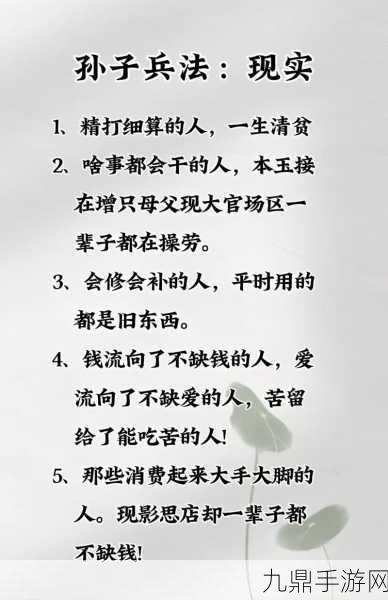做过与没做过的人的思维差异
经历不同,导致人们在面对问题时有着截然不同的思维方式。那些曾尝试某种事物的人,通常会拥有更丰富的视角和方法,他们能够从实际经验中提炼出宝贵的教训。而未曾涉足此领域的人,则可能对相关信息感到陌生或无所适从。这种心理上的隔阂,使得两类人在解决同一问题时,会出现显著差别。
实践带来的自信心
参与过某项活动或项目的人,在进行相似决策时往往更加自信。由于他们已经积累了一定的经验,可以预测潜在结果并制定有效策略。这份自信不仅源于知识,还基于以往成功与失败案例中的反思。相比之下,从未体验该活动的人则容易缺乏这种直觉。他们可能因为不确定性而犹豫不决,对未知充满恐惧,因此难以迅速作出反应。

社交能力和沟通技巧的发展
主动参与各种社会活动能极大提升个人的社交能力。在这些互动中,人际关系、情绪管理及表达意见等方面都会得到锻炼。因此,那些积极参加各类生活场景的人,更容易建立良好人脉,并且善于倾听他人观点。而没有类似经历者,由于缺少真实交流机会,其沟通技巧常常处于较低水平,这使得他们在人际交往上遇到了更多障碍。
风险承受力与适应能力
接触新挑战可以培养一个人的风险承受力和适应能力。 No matter the outcome, those who dare to take risks are often better equipped to handle similar situations in the future. They learn how to manage their emotions and expectations when faced with failures or setbacks. In contrast, individuals who avoid challenges may find themselves unprepared for unexpected changes and can struggle significantly when required to adapt.

创造力与创新意识
A person’s exposure to diverse experiences fosters creativity. This is especially true for those who actively seek out new opportunities and ventures. By stepping outside of comfort zones, they inspire fresh ideas and approaches that might not have been considered otherwise. Conversely, lack of experience can lead to a more rigid mindset where conventional solutions dominate thinking patterns, stifling innovation.
The Importance of Learning from Mistakes
Error analysis plays a significant role in personal growth. Individuals who have made mistakes during various endeavors tend to reflect on these missteps critically; this reflection encourages them not only to understand what went wrong but also how such errors can be avoided in subsequent attempts. This iterative learning process builds resilience over time as opposed to those untouched by failure—who may fear making any decisions at all due largely because they’ve never had an opportunity for such critical self-assessment.







